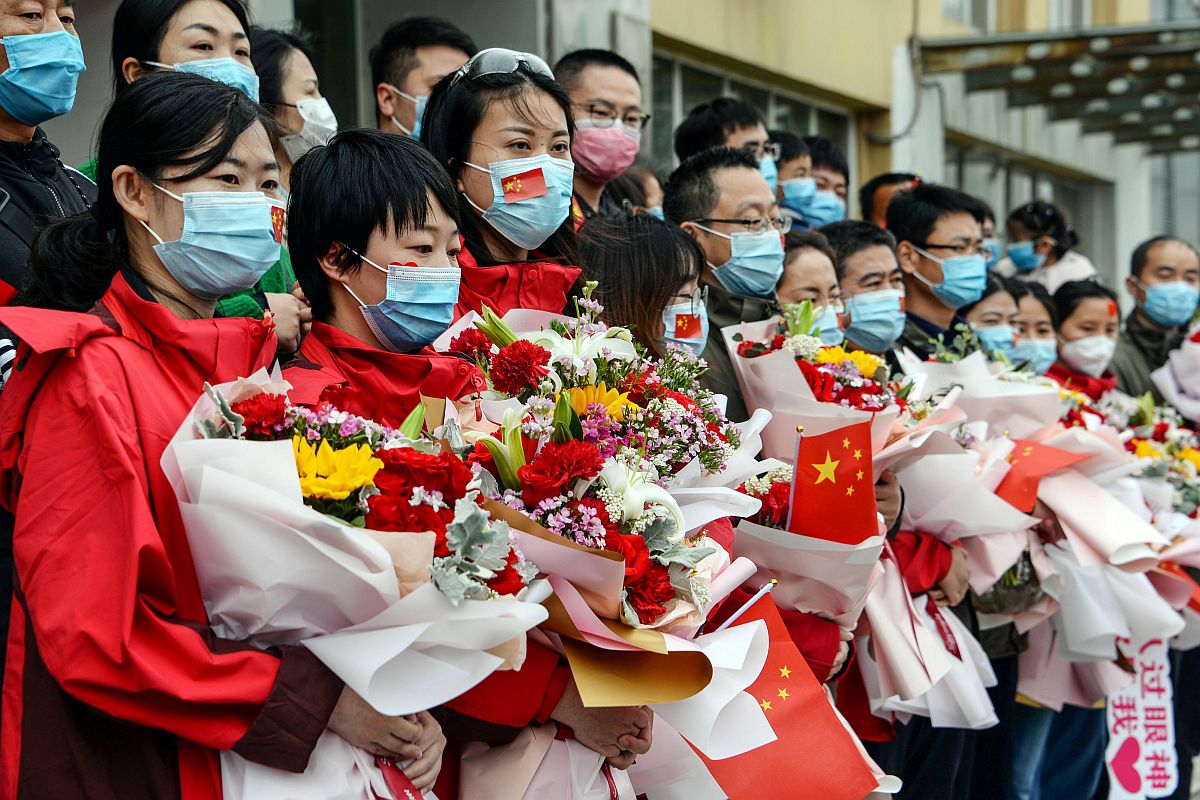Trump announces US withdrawal from World Health Organisation
Trump has long been critical of the WHO, and his administration formally withdrew from the organisation in July 2020 as the Covid-19 pandemic continued to spread.
Under lockdown since 23 January and sealed off from the world for no fewer than 76 days, the city where the coronavirus pandemic germinated has opened its doors again.

Under lockdown since 23 January and sealed off from the world for no fewer than 76 days, the city where the coronavirus pandemic germinated has opened its doors again. (Photo: AFP)
Wuhan emits a signal of hope in the season of despair. Visuals testify to the new-found freedom as it were. The “liberation” of Wuhan on Wednesday midnight has been quite the most spectacular piece of breaking news in the midst of a gigantic health crisis the world over that originated in this Chinese city.
Under lockdown since 23 January and sealed off from the world for no fewer than 76 days, the city where the coronavirus pandemic germinated has opened its doors again ~ at railway stations, the airport, the Hyundai factory and restaurants to name but a few normally crowded destinations.
Advertisement
It was almost a son et lumaire show. Having contained the pandemic, the authorities had organised the grandstanding with light shows, social media campaigns led by the state media, and special events to mark the reopening of the airports, stations and factories. Train and bus terminals were illuminated on so historic an occasion as were skyscrapers in the city centre that were lit up with the words: “Hello, Wuhan”. Up and running as it used to be prior to December 2019, the city has returned to the mainstream.
Advertisement
“We were trapped for too long and it is coming back to life after the lockdown in Wuhan,” was the general refrain that summed up the mood of the people. In a very real sense, Wuhan has been a pathfinder to the world, now struggling to counter a dreadful affliction. By and large, it has been a successful struggle in the People’s Republic of China. The lockdown was an unprecedented measure that has over the past three months been emulated by many countries on either side of the Pacific and also, of course, within China.
An estimated 56 million people in Hubei province, with Wuhan as capital, were under de facto quarantine. In retrospect, the strategy was justified not the least because fresh cases in China have dropped dramatically, though the virus has spread globally. The policy has indeed slowed down the spread of the virus by forcing social distancing and limiting transmission between Hubei and other parts of the country.
Nonetheless, the lockdown has also been criticised in China as a draconian measure of last resort, taken only because the authorities had waited too long and suppressed early warnings. According to official figures, more than 2,500 people in the city have died from the virus, but some residents believe the actual figure is likely to be higher. Other measures remain in place, however. Is it possible that the authorities in Beijing do not believe the pandemic is completely over? Restrictions in residential compounds are still in place. Educational institutions are still closed; the date of reopening will be “decided after evaluation of prevention efforts”.
All the same, things are a lot less grim than they were a few weeks ago. And that must afford a scintilla of hope to a world increasingly under the weather.
Advertisement